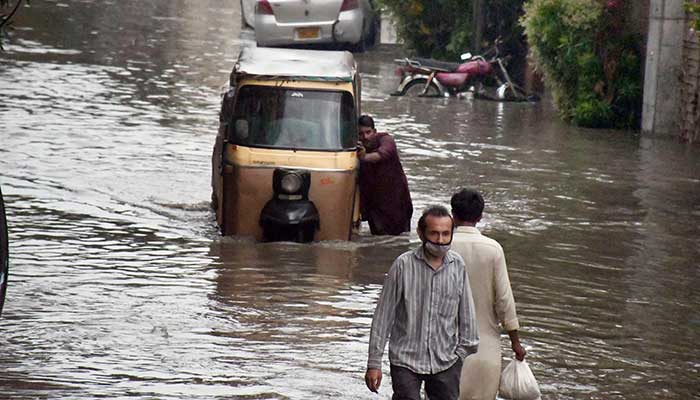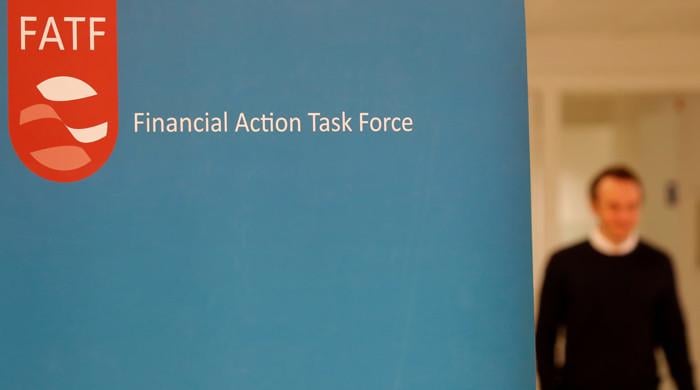More rains predicted in Sindh cities including Karachi
Karachi weather update: According to a PMD official, the city may receive heavy downpour on Monday
August 29, 2020

The Pakistan Meteorological Department (PMD) has predicted more torrential rains in parts of Sindh and Balochistan from Saturday to Monday including Karachi.
A heavy downpour can also take place in upper Khyber Pakhtunkhwa, Southern Punjab, Kashmir and Gilgit-Baltistan, said the Met Office.
According to the weather department’s update, the low-lying areas in Sindh face the threat of urban-flooding once more.
“Another monsoon rain-bearing system is likely to enter in Sindh on Saturday and under its influence, rain/wind-thundershowers, with isolated heavy to very heavy falls, are expected in Karachi, Hyderabad, Thatta, Badin, Shaheed Benazirabad, Dadu, Tharparker, Nagarparker, Mirpurkhas, Islam Kot, Umar Kot, Sanghar, Sukkur and Larkana from Saturday (evening) to Monday,” the PMD said in its latest advisory.
"Heavy rainfall may further aggravate existing urban flooding/water logging in Karachi, Hyderabad, Thatta, Mirpurkhas and Badin on Sunday and Monday. Heavy downpour may generate flash flooding in Sibbi, Kalat, Khuzdar, Lasbella and Dera Ghazi Khan during the period."
In Punjab, Bahawalpur, Rahimyar Khan, Khanpur, DG Khan, Multan, Khanewal and Sahiwal will also receive rainfall during this time period.
It added that rain-thundershowers with isolated heavy falls are also expected in Lasbella, Khuzdar, Awaran, Barkhan, Zhob, Musa Khel, Loralai, Kohlu and Sibbi during Sunday and Monday.
According to the PMD, the rest of the country will likely remain hot and dry, including Islamabad.
A heavy downpour can also take place in upper Khyber Pakhtunkhwa, Southern Punjab, Kashmir and Gilgit-Baltistan, said the Met Office.
'Upcoming spell will be of less intensity'
Pakistan Meteorological Department Director Sardar Sarfaraz earlier said that the previous spell of torrential rains in Karachi was of high intensity and the upcoming spell will not be of the same magnitude.
He said that rain can lash parts of the city from Sunday afternoon, adding that it can be a heavy downpour.
The Met Office official said that the spell can gain intensity on Monday and lead to urban flooding once again.











